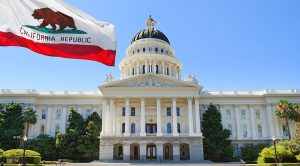The Sabin Center published a new report today recommending actions that federal agencies could take to ensure safe and responsible permitting and regulation of ocean carbon dioxide removal (CDR) research in U.S. waters.
The Intergovernmental Panel on Climate Change has concluded that CDR will be needed, alongside deep emissions cuts, to achieve global climate goals. A variety of ocean-based CDR approaches—i.e., approaches that use the ocean to remove and store carbon dioxide from the atmosphere—but further research is needed to evaluate to fully evaluate their efficacy, risks, and benefits. Many of the remaining scientific questions can only be answered through in-ocean field trials. Those activities could raise a host of legal issues.
The Sabin Center has been at the forefront of efforts to map the existing legal framework for ocean CDR. Earlier this year, we published a book—Ocean Carbon Dioxide Removal for Climate Mitigation: The Legal Framework—that explores the treatment of various ocean CDR techniques under international law. The book also analyses the domestic laws governing ocean CDR in Canada, China, Germany, the Netherlands, Norway, the U.K., and the U.S. Additional detail on the U.S. legal framework for ocean CDR is provided in a series of white papers published by the Sabin Center. The white papers provide a more detailed analysis of the laws governing ocean fertilization, seaweed cultivation, artificial upwelling and downwelling, and ocean alkalinity enhancement.
Our research into the existing legal framework for ocean CDR highlighted a number of issues. In the U.S., for example, in-ocean research projects may be subject to various general environmental laws (depending on where the projects occur and the activities involved). Those were not designed with ocean CDR in mind and there is often significant uncertainty around their application to this new type of activity. In some cases, the laws may impose multiple, overlapping or duplicative permit and other legal requirements on ocean CDR projects. The time, cost, and complexity associated with navigating those requirements could prevent some needed research. Simplifying the legal framework could help avoid that. At the same time, however, appropriate safeguards are needed to ensure that research projects do not present unacceptable risks to the environment and communities and are conducted in a safe and responsible way.
One way to address these issues would be to enact new federal legislation. In March 2023, the Sabin Center published model federal legislation which, if enacted by Congress, would create a new legal framework specifically for ocean CDR research. The framework is designed to facilitate needed research but still ensure it is conducted in a safe and responsible way that maximizes benefits and minimizes risks. While this is arguably the best path forward, enacting new legislation is difficult, requiring the balancing of constituents and interests across the country, and can take a number of years.
Absent new legislation, federal agencies could take a variety of actions under existing law to facilitate safe and responsible ocean CDR research. The actions outlined in the report published today aim to do just that. The recommendations, detailed further in the paper, are:
- Federal agencies involved in reviewing ocean CDR projects should clarify their respective roles and responsibilities and take steps to avoid duplicative processes and otherwise streamline project reviews.
- Funding agencies should consult with permitting agencies on ocean CDR funding decisions. Permitting agencies should provide guidance to funding agencies on whether projects they propose to fund are likely to meet permitting requirements.
- Federal agencies should explore options for streamlining environmental review of ocean CDR projects, including through the use of categorical exclusions for projects that pose minimal environmental risks.
- Federal agencies should, where appropriate, conduct programmatic environmental reviews for ocean CDR activities.
- Federal agencies should require those seeking federal funding for, or federal approval of, ocean CDR projects to develop and implement robust public engagement programs.
- Federal agencies should coordinate with, and provide assistance and resources to, other government bodies involved in reviewing ocean CDR projects.
- The Environmental Protection Agency (EPA) should clarify when the Marine Protection, Research, and Sanctuaries Act (MPRSA) will apply to ocean CDR activities.
- EPA should clarify when MPRSA research permits may be issued for ocean CDR activities.
- EPA should establish an MPRSA permit application tracking system.
- EPA should create a database of MPRSA permits for ocean CDR projects.
- The Department of the Interior’s Bureau of Ocean Energy Management (BOEM) should clarify when ocean CDR projects on the outer continental shelf require a lease or right-of-way under the Outer Continental Shelf Lands Act.
- BOEM should confirm that it has authority to issue leases for ocean CDR projects that are integrated with renewable energy facilities.
- The Army Corps of Engineers should consider issuing general permits for ocean CDR activities that present minimal environmental risks.
- The National Oceanic and Atmospheric Administration (NOAA) should share relevant data with permitting agencies to enable them to evaluate project impacts.
- NOAA should provide technical assistance to permitting agencies for the evaluation of project impacts.
- The Department of Energy should share relevant data and provide technical assistance to permitting agencies on ocean CDR projects.
The full report and recommendations are available here.






